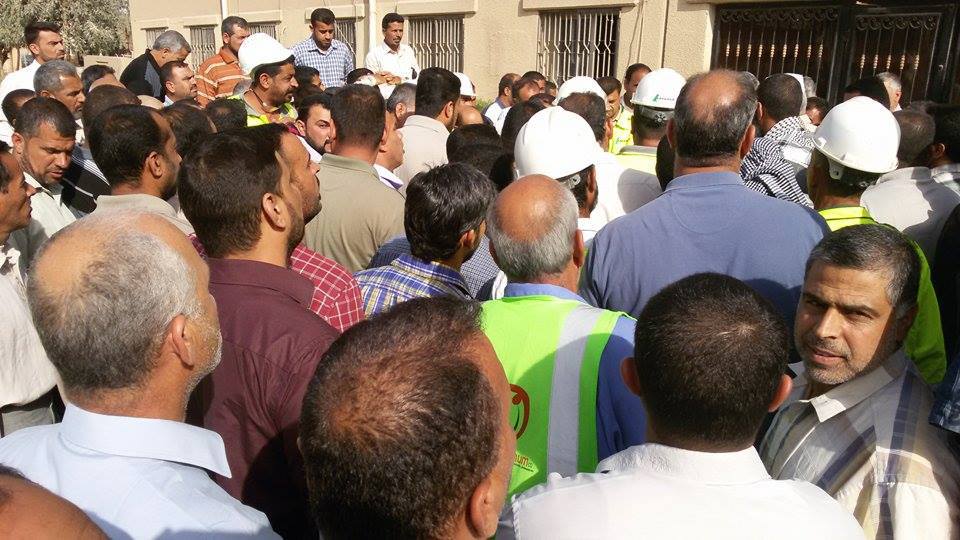
May 4, 2015
Some 350 workers at the Karbala cement plant signed a petition in April requesting representation in negotiations with management after management refused a similar request by a group of workers in February. The workers signed the petition after months of outreach by their co-workers to educate them on their rights.
Although Iraq law prohibits the workers from establishing a union because it is a public-sector factory, the plant receives International Finance Corp. (IFC) loans and IFC labor standards require respect for freedom of association. Also in April, cement workers staged a rally to urge management to meet with a committee of workers to discuss improving safety and health conditions and other key issues.
Workers at the plant, owned by Iraqi government but operated by a private company, say some have been unfairly penalized for asking for better wages and a safer work environment. One worker was transferred and another is being investigated, the workers say. The General Federation of Workers’ Unions in Iraq (GFWUI) sent a letter of support to the workers. “Your struggle is the struggle of all workers,” GFWUI wrote. (GFWUI’s letter in English and Arabic.)
Iraqi workers elsewhere are successfully improving working conditions at IFC-funded workplaces, using skills gained through Solidarity Center training programs, and are documenting violations and negotiating with management to improve working conditions.
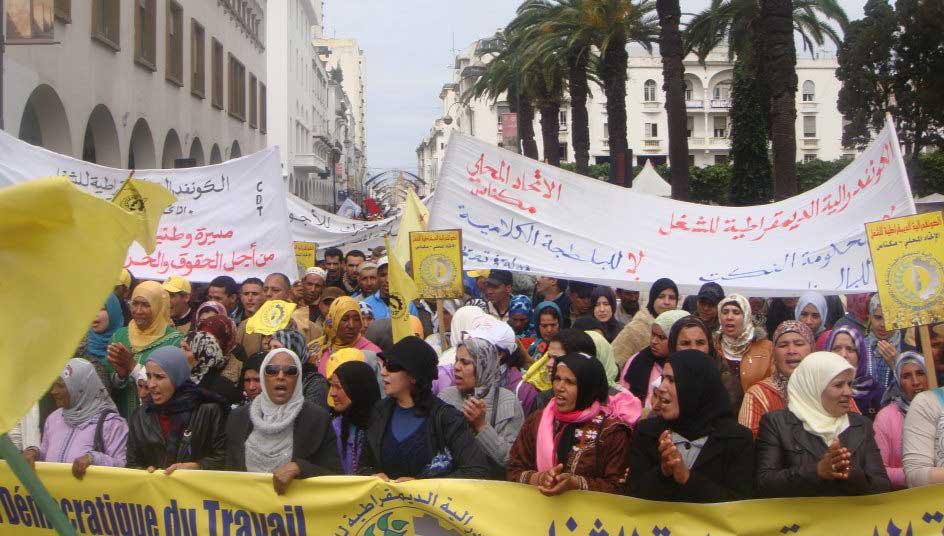
May 1, 2015
Workers in Bahrain, Burundi, Morocco, Swaziland and Turkey are standing strong in the face of economic and political threats this May Day.
May 1 is generally a time when workers around the world celebrate the dignity of work and working people’s social and economic achievements. But this year, governments in some countries have banned May Day celebrations, while elsewhere, workers are forced to protest lack of progress in attaining their share of economic prosperity.
Working women and men are undaunted by intimidation and, in some cases, risking their lives to exercise their freedom to gather in the public space and stand up for their rights. This year more than ever, May Day stands as a beacon for internationally recognized human and labor rights. Here’s a roundup.
Bahrain: The government on April 30 banned all May 1 rallies, forcing the General Federation of Bahrain Trade Unions (GFBTU) to abruptly cancel its weekend celebrations. The federation had planned a rally, medical camps, family outings and award ceremonies focusing on the rights of women and migrant workers in the workplace. Thousands were expected to attend the rally, including members of more than 45 GFBTU-affiliated trade unions.
Burundi: Hundreds of journalists and human rights activists have been arrested and Internet has been inaccessible in the capital, Bujumbura, in recent days following protests against the re-election bid of President Pierre Nkurunziza. Some journalists have been “beaten up and workplaces forced to close down,” one journalist told allAfrica. Civil society organizations and political movements have been denied the right to hold public meetings and assemblies. The Confédération Syndicale du Burundi (COSYBU) and the Organization of Free Unions of Burundi (CSB) cancelled May 1 festivities because of the country’s insecurity.
Morocco: The Moroccan union movement is boycotting May 1 celebrations and instead turning May into a month of protest. The Moroccan Labor Union (Union Marocaine de Travail), the Democratic Confederation for Labor (Confédération Démocratique du Travail) and the Democratic Federation for Labor (Fédération Démocratique du Travail) and others will protest the lack of movement in improving civil servants’ salaries, increasing the minimum wage and boosting minimum pension, per an agreement with the government in April 2011.
Swaziland: Despite a ban on May Day rallies, the Trade Union Congress of Swaziland (TUCOSWA) is encouraging members to turn out and “celebrate their day and not be prevented by actions that are at best unlawful.” Police announced that only “recognized unions” will be allowed to mark May Day. The authorities have refused to recognize TUCOSWA, and police have repeatedly broken up TUCOSWA meetings this year, injuring at least one union leader. “Our members are geared for their celebrations and will not be prevented by threats from the police,” says TUCOSWA Secretary-General Vincent Ncongwane.
Some Swazi pro-democracy activists and trade unionists have been imprisoned. Sign a LaborStart petition demanding their release. If you Tweet, use the hashtag #SwaziJustice.
Turkey: After hundreds of workers defied a ban on May Day rallies in Istanbul, riot police fired tear gas and water cannon on protestors in the city’s central Taksim Square. Unions had called on the government to lift its ban on “illegal demonstrations,” in Taksim. Much of Istanbul’s public transport is shut down and police helicopters are circling over the city.
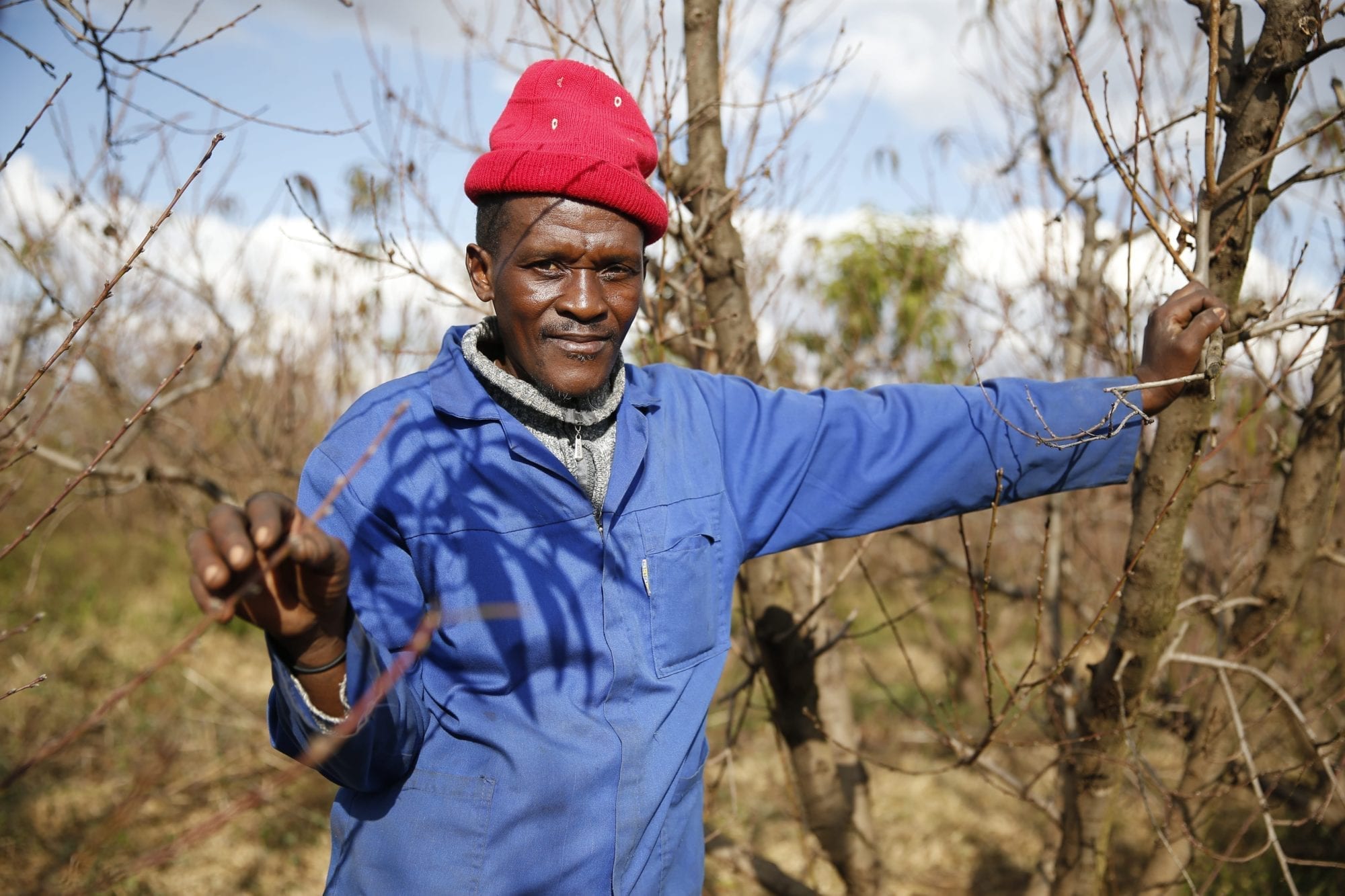
Apr 29, 2015
As the Senate takes up reauthorization of the African Growth and Opportunity Act (AGOA), passed in 2000, the bill should include provisions strengthening worker rights, human rights and mandating resource transparency, says Cathy Feingold, director of the AFL-CIO International Department.
Testifying before the Senate Subcommittee on Africa and Global Health Policy last week, Feingold said that the AFL-CIO “strongly supports reauthorization of AGOA,” but it must be strengthened by including provisions to abolish the worst forms of child labor. AGOA also should include a democracy clause that allows trade benefits be limited, suspended or withdrawn when violated, she said, “because “workers are unlikely to freely exercise their rights under a government that fails to respect their political rights.”
(Read Feingold’s full testimony.)
During the 2014 U.S.-Africa Leaders Summit, the AFL-CIO hosted a delegation of 38 union leaders and worker rights advocates from sub-Saharan Africa who support AGOA’s reauthorization but argued for improving it.
As the report by the AFL-CIO and Solidarity Center points out, in the 15 years AGOA has been in effect, it has increased exports from sub-Saharan Africa but has not spurred broader development or fostered a robust and equitable economic system.
Following the Summit, the AFL-CIO and the International Trade Union Confederation’s Africa Regional Office issued a joint partnership statement focused on inclusive economic growth, stating that workers must benefit from job creation and access to financial stability, education, health care and social protection.
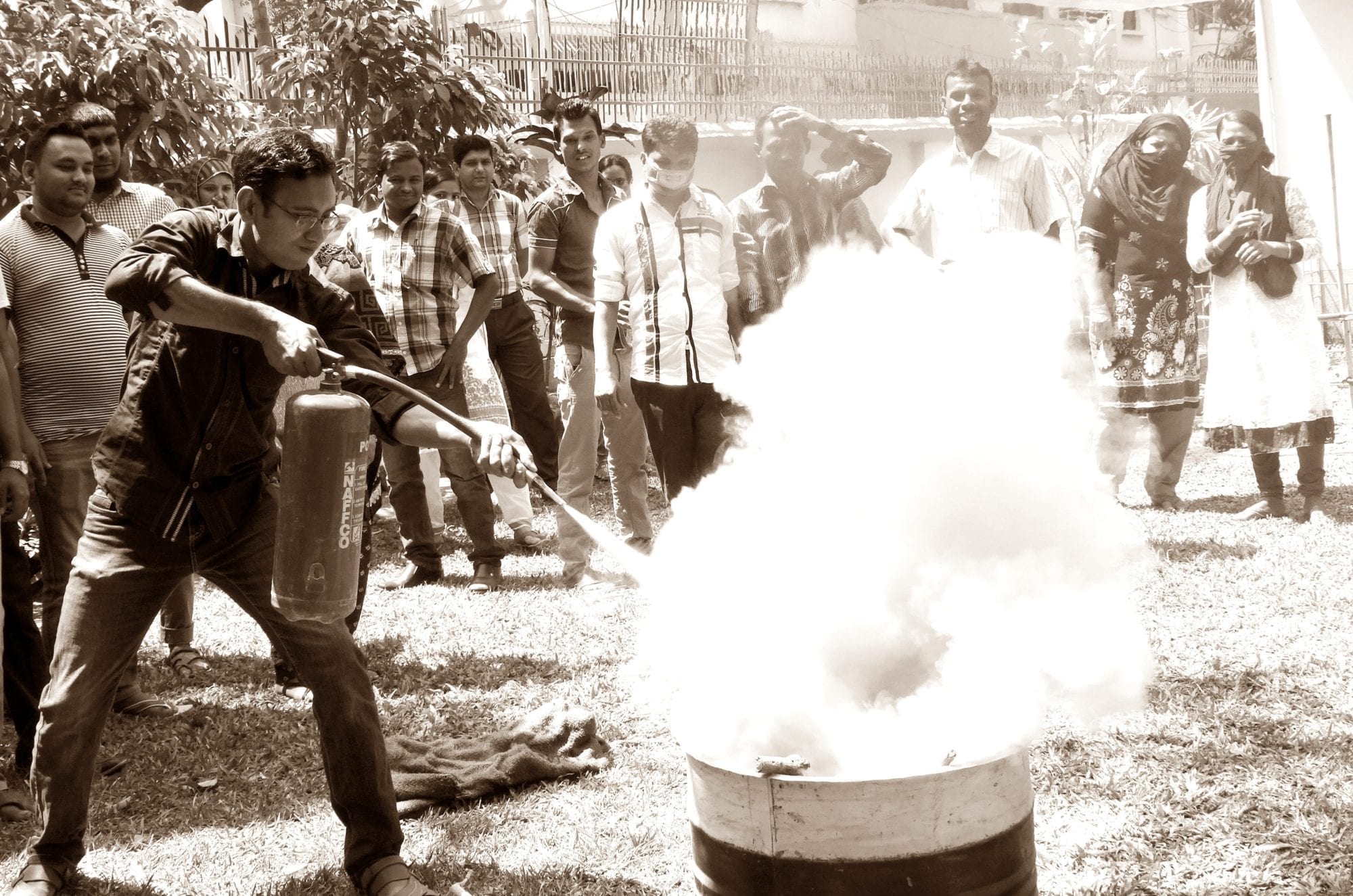
Apr 28, 2015
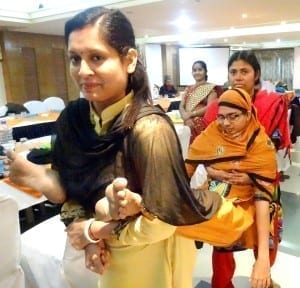
Garment workers practice emergency techniques during a Solidarity Center fire safety training. Credit: Solidarity Center/Balmi Chisim
Safe and healthy jobs are among workers’ most fundamental rights, and each year on April 28, World Day for Safety and Health at Work, the global labor community shines a spotlight on these rights. Workers and their unions commemorate those who lost their lives on the job and hold events and informational activities to raise awareness of the need for workers, employers and governments to actively participate in securing a safe and healthy working environment.
Through unions, workers achieve the strong, collective voice needed to improve safety and health at the workplace. In Bangladesh, where the deadly Tazreen Fashions Ltd. factory fire killed 112 garment workers in 2012, and where at least 41 garment workers have perished in fire incidents since then, more and more workers are seeking unions to ensure their factories are safe.
In recent months, dozens of garment workers have taken part in the Solidarity Center’s fire safety training program, a 10-session course that aims to equip union leaders with essential knowledge and skills on workplace safety. The workers then educate their co-workers and strengthen their unions’ ability to raise and rectify unsafe factory working conditions.
“People who worked at Tazreen and Rana Plaza had no training and had no union,” says Saiful, referring to the Rana Plaza building collapse that killed more than 1,130 garment workers in 2013. “This training is about making sure those things never happen again.” Saiful, a union leader from Radisson Apparels, took part in the most recent fire safety training
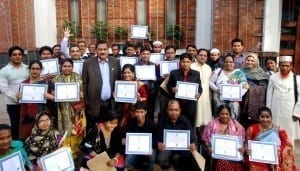
Participants who successfully completed a fire safety training take part in a closing ceremony. Credit: Solidarity Center/Balmi Chisim
Urmi, a union organizer, agrees. “Thousands of people died (as a result of Rana Plaza and Tazreen). We need to know what to do and have, and give workers the confidence to be leaders in their factories.”
In the program’s next stage, the Solidarity Center and the union leaders who have participated in the training will begin training workers at their factories.
Morshed Hossain a union leader from Step III Apparels Ltd., says he organized a union at his factory so workers could push for clean toilets, respect from supervisors and their due wages. Morshed said that midway through the fire safety training in March, he went back to “talk to the other workers in my factory about what to do in case there is a fire.”
Abdul Hakim, a union organizer who also took part in a fire safety training, said “before this training, we were not aware about workplace safety. But now we know what to do and how we can talk to workers.”
As Solidarity Center Bangladesh Country Program Director Alonzo Suson said during a ceremony marking the conclusion of the first fire safety training last July:
“Workers around the world have found that, by forming unions and speaking with a collective voice, they are better able to ensure safer working conditions. These new union leaders will be able to take what they’ve learned back to their co-workers to make their factories better, healthier and safer places to work.”
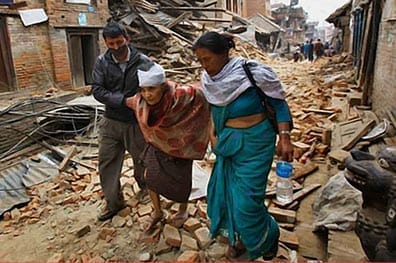
Apr 27, 2015
With thousands of people dead and even more made homeless in Nepal following a devastating magnitude-7.8 earthquake, Solidarity Center union allies in the country are reporting no casualties among their staff and are organizing to support relief efforts in the Nepali capital.
The General Federation of Nepalese Trade Unions (GEFONT), which represents mostly blue-collar workers, the Nepal Trade Union Congress (NTUC), which includes teachers and other white-collar workers and the Joint Trade Union Coordination Center (JTUCC), the umbrella organization of GEFONT and the NTUC, say their employees are safe and now working to provide disaster relief. Both GEFONT and the NTUC represent many workers in the tourist industry.
“Kathmandu valley is unimaginably destroyed,” says Bishnu Rimal, GEFONT president. “It is the most terrible quake we have ever experienced. Chilling cold, plus rain, lack of tents and [continuous] jolts is sufficient to scare people. It has disturbed even rescue work.”
The earthquake hit central Nepal on Saturday, from Mount Everest to Kathmandu and further west, wiping out entire villages. As rescue teams began to arrive from around the world, much of the stricken area remained inaccessible, locked in mountainous terrain with some roads blocked by landslides.
In letters to Rimal and Khila Dahal, NTUC general secretary, AFL-CIO President Richard Trumka expressed heartfelt condolences and solidarity.
“We will … work with the global labor movement to ensure that the working families impacted by this tragedy receive the support needed to rebuild their communities,” Trumka said.
The earthquake and aftershocks were felt as far away as Dhaka, Bangladesh, where one garment worker was killed and more than 200 injured as workers rushed out of factories when the quake hit.
At least one worker reported to Solidarity Center staff there that he took successful safety measures at his factory when the quake hit because of skills he learned at a recent Solidarity Center’s fire and building safety training. In recent months, the Solidarity Center has held a series of safety trainings for garment workers near Dhaka and Chittagong, where most factories are located. The 10-day trainings provide workers with hands-on fire and building safety experience, which includes steps to take during earthquakes.







